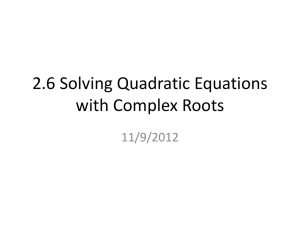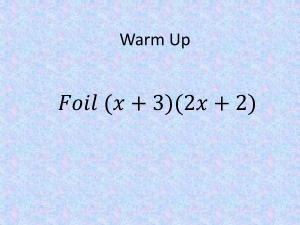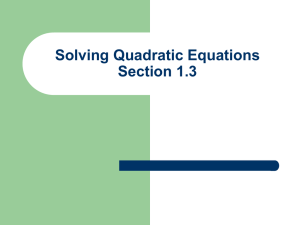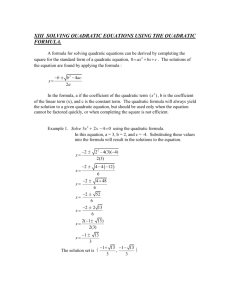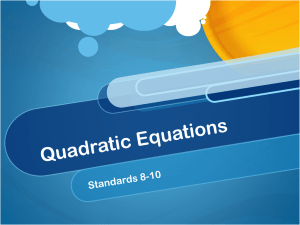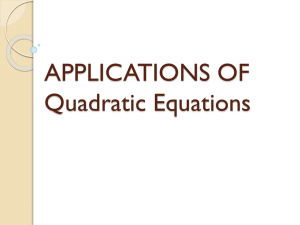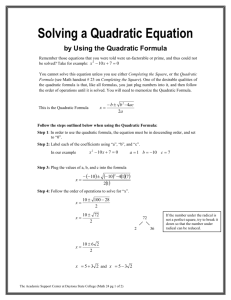C1 Basic Algebra Summary
advertisement
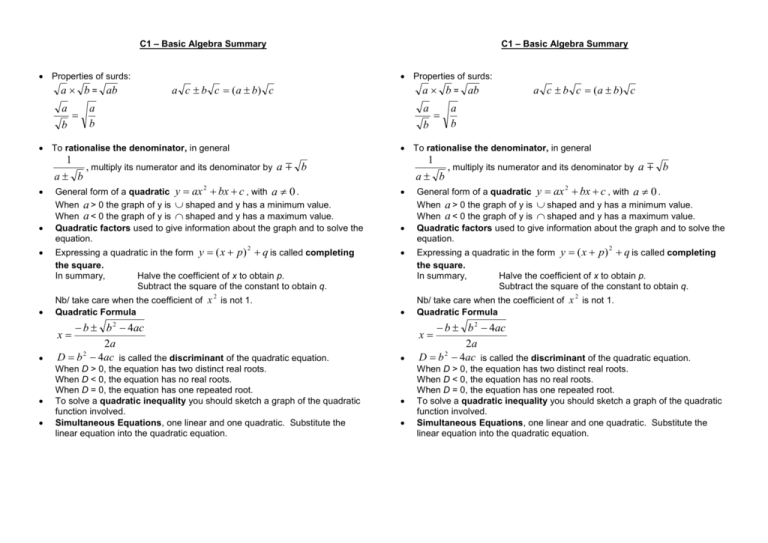
C1 – Basic Algebra Summary Properties of surds: a b = ab a b Properties of surds: a b a b = ab a c b c ( a b) c a b a b To rationalise the denominator, in general 1 C1 – Basic Algebra Summary 1 , multiply its numerator and its denominator by a b a b Expressing a quadratic in the form y ( x p) q is called completing the square. In summary, Halve the coefficient of x to obtain p. Subtract the square of the constant to obtain q. 2 2 2 Nb/ take care when the coefficient of x is not 1. Quadratic Formula b b 4ac 2a D b 2 4ac is called the discriminant of the quadratic equation. a b To rationalise the denominator, in general General form of a quadratic y ax bx c , with a 0 . When a > 0 the graph of y is shaped and y has a minimum value. When a < 0 the graph of y is shaped and y has a maximum value. Quadratic factors used to give information about the graph and to solve the equation. x a c b c ( a b) c General form of a quadratic y ax bx c , with a 0 . When a > 0 the graph of y is shaped and y has a minimum value. When a < 0 the graph of y is shaped and y has a maximum value. Quadratic factors used to give information about the graph and to solve the equation. 2 Expressing a quadratic in the form y ( x p) q is called completing the square. In summary, Halve the coefficient of x to obtain p. Subtract the square of the constant to obtain q. 2 2 Nb/ take care when the coefficient of x is not 1. Quadratic Formula b b 2 4ac 2a D b 2 4ac is called the discriminant of the quadratic equation. 2 When D > 0, the equation has two distinct real roots. When D < 0, the equation has no real roots. When D = 0, the equation has one repeated root. To solve a quadratic inequality you should sketch a graph of the quadratic function involved. Simultaneous Equations, one linear and one quadratic. Substitute the linear equation into the quadratic equation. , multiply its numerator and its denominator by a b x When D > 0, the equation has two distinct real roots. When D < 0, the equation has no real roots. When D = 0, the equation has one repeated root. To solve a quadratic inequality you should sketch a graph of the quadratic function involved. Simultaneous Equations, one linear and one quadratic. Substitute the linear equation into the quadratic equation.
